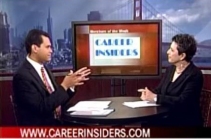My advice is always to customize your resume for each job opportunity, but how can you keep track of everything? Create a document folder for each position that you submit a resume for. In this folder include the resume version you submitted for that job plus a copy of the job description, cover letter, and any other related documentation or correspondence. Be sure to save a copy of the full job description rather than just the url to the online posting as the posting may be removed from the company’s web site at any time.
Name your documents in such a way that they can be clearly identified – by the company’s recruiter and/or hiring manager as well as by you. For the recruiter/hiring manager, document tiles should include your name and the type of document; ie resume or cover letter. Don’t overlook the fact that this simple title is a mini writing sample, and so you should make sure that there are no spelling errors. Even if you’re careful to keep the right resume version in the proper folder, you may want to add something that identifies the company and/or position. Here are some examples:
- Schwartz, Mauri – Resume (Google)
- Schwartz, Mauri – Cover (Google-VP, Finance)
- JD – Google VP, Finance [JD=job description]
You may add a date if you’d like but it’s much less important since you can always check the date the document was created and most recently modified using the Properties feature.
- Schwartz, Mauri – Resume (2015)
- Schwartz, Mauri – Cover (2015-0418)
Finally, you should create an Excel spreadsheet to track your job search progress and include the following information. You can find a sample of what this may look like on the Career Insiders web site.
- Company Name
- Job Title
- Person Contacted/Person to Contact
- Contact Info
- Action Taken
- Date Action Taken
- Next Action to Take
- Date of Next Action to Take
- Notes/Comments
Sort the list according to Date of Next Action to Take. It’s important to keep your tracking spreadsheet up to date. I’ve found that clients who do this make more progress in their search if only because they have a written plan which specifies what they need to do next and when. In this way, they keep themselves accountable.
Here’s a lagniappe: If you use Word’s Tracking feature to show changes you’ve made or those made by someone else whom you’ve asked to proofread your resume, don’t forget to turn tracking off before sending it out! (A lagniappe is a word use chiefly in Louisiana which means “a small gift given with a purchase to a customer, by way of compliment or for good measure; a bonus.”)

Mauri Schwartz, President and CEO of Career Insiders, is a leading figure in the San Francisco Bay Area career and talent management community. Career Insiders consults with companies and nonprofit organizations regarding executive recruitment as well as outplacement for all employee levels, and job seeker services for individual clients. In addition to her outstanding success rate in helping clients achieve their career goals, Mauri is a frequent speaker at conferences, job fairs, and career panels. She has served as Adjunct Advisor of Career Services at the Haas School of Business, University of California, Berkeley where she received her MBA and delivered seminars at other universities (Tulane, Mills, San Francisco State, others), nonprofits, and businesses. Mauri’s motivational style uses techniques that combine old fashioned interpersonal relationship building skills with the latest technological tools. Career Insiders has been certified by the City and County of San Francisco as a woman-owned business.




